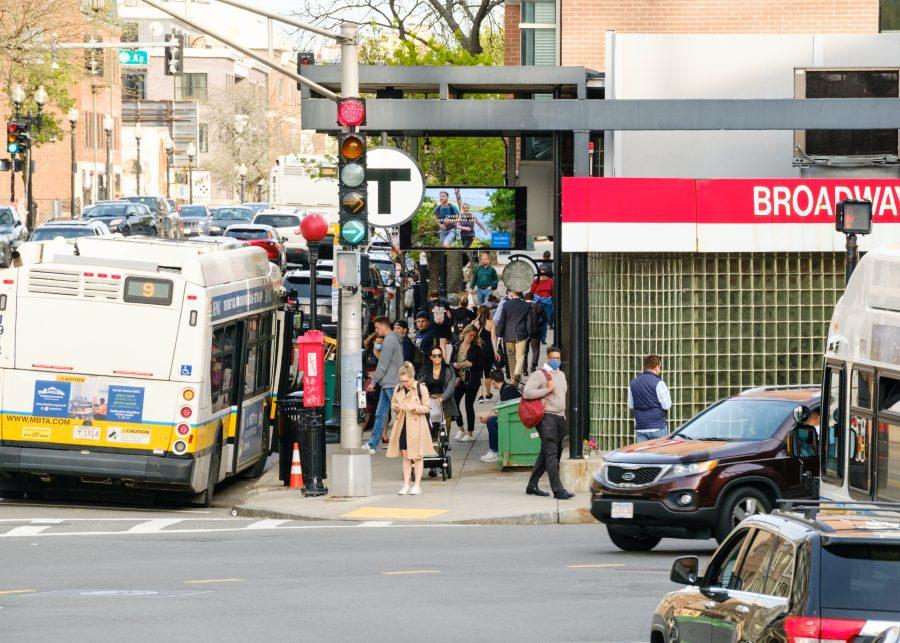Over the summer, I worked as an intern for a Roxbury-based organization called Alternatives for Community & Environment. All of us at ACE worked to inform the people of Roxbury about policies and projects that would harm the natural environment around them. One of these issues that I worked to spread awareness about was the proposed redesign of the MBTA’s bus network.
The MBTA is planning an overhaul of its bus network that would spread the system out much further and service more people. On paper, this is an amazing step forward! More people get more access to public transportation; we need that.
The problem is how the MBTA is going about it. This project has not been well-publicized. Everyone who I’ve spoken to outside of my organization has been taken by surprise when I mention it. I’ve ridden the MBTA and examined several different stations but have hardly seen or heard anything about it. The MBTA claim that they are spreading the word, but how can that be true when so many people are completely surprised when it is brought up?
Then there’s the fact that the MBTA is simply expanding the range of existing bus lines instead of implementing new ones. They will even be removing existing bus lines and using other lines to replace them. For example, the number 8 bus will be partially replacing the number 10, and parts of the number 16 and 17. They claim that service on these new expansions will be just as fast or even faster than the originals; my experience with ACE has given me reason to have serious doubts about this.
Because I spent my summer studying Roxbury, I’ll use it to illustrate just how detrimental this redesign could be to the area. The three biggest hubs for the MBTA in Roxbury are Jackson Square, bus and Orange Line service; Nubian Station, only bus service; and Ruggles, bus and Orange Line service. These areas support many small businesses and are crucial in the daily commute of students and employees. Currently, three bus lines connect Jackson to Nubian, and eight connect Nubian to Ruggles. The poorly designed and confusing maps published by the MBTA seem to indicate that the redesign of the bus network would significantly decrease the number of connections between these three.
It speaks volumes that a low-income neighborhood such as Roxbury is being shortchanged in this way. When you look at the map of their proposed changes, it feels like they never consulted with anyone who lives in the area when drawing up their plans. I can’t speak for the rest of Boston and the Boston area, but from the perspective of my neighborhood, I am not a fan of what I’ve seen. I believe it is going to hurt so many people who don’t even know what’s coming because the MBTA did not spread the word as well as they think they did.
I want to clarify that as an environmental science student, I support expansion of public transportation and I do want to see the bus system changed: just not with the current proposals. From the standpoint of the environment and safety, I believe that the money the MBTA is putting into the buses should be going towards the subways.
It has been a difficult time for the MBTA’s subways and its riders. Derailments, out-of-control train cars, injuries and deaths have all claimed headlines in the past years. The recent shutdowns of Green Line and Orange Line service are attempts to remedy the situation, but the infrastructure is old and has been neglected for too long. A month’s worth of work isn’t enough to fix the multitude of issues that have cropped up over the years. But it is a start.
If I had to choose between the buses and the subways, I would renovate and expand the subways. If we were to update all the infrastructure in the stations and the rails themselves, people’s trust in the system would improve. Delays would occur far less frequently. Everything would run much smoother. A good subway system will take more cars off the road, leading to a decrease in carbon emissions and prove beneficial to the atmosphere. Less cars also means slightly more bearable rush-hour traffic and easier transportation through the city.
I don’t disagree with making buses more accessible to residents in other parts of the state, but I do disagree with it coming at the expense of people who already rely on them. If the MBTA were to propose a new system of buses that served these harder-to-reach areas, I would be all for it. But if it were a matter of this bus network redesign or the renovation of the subways, I’d choose the latter.

